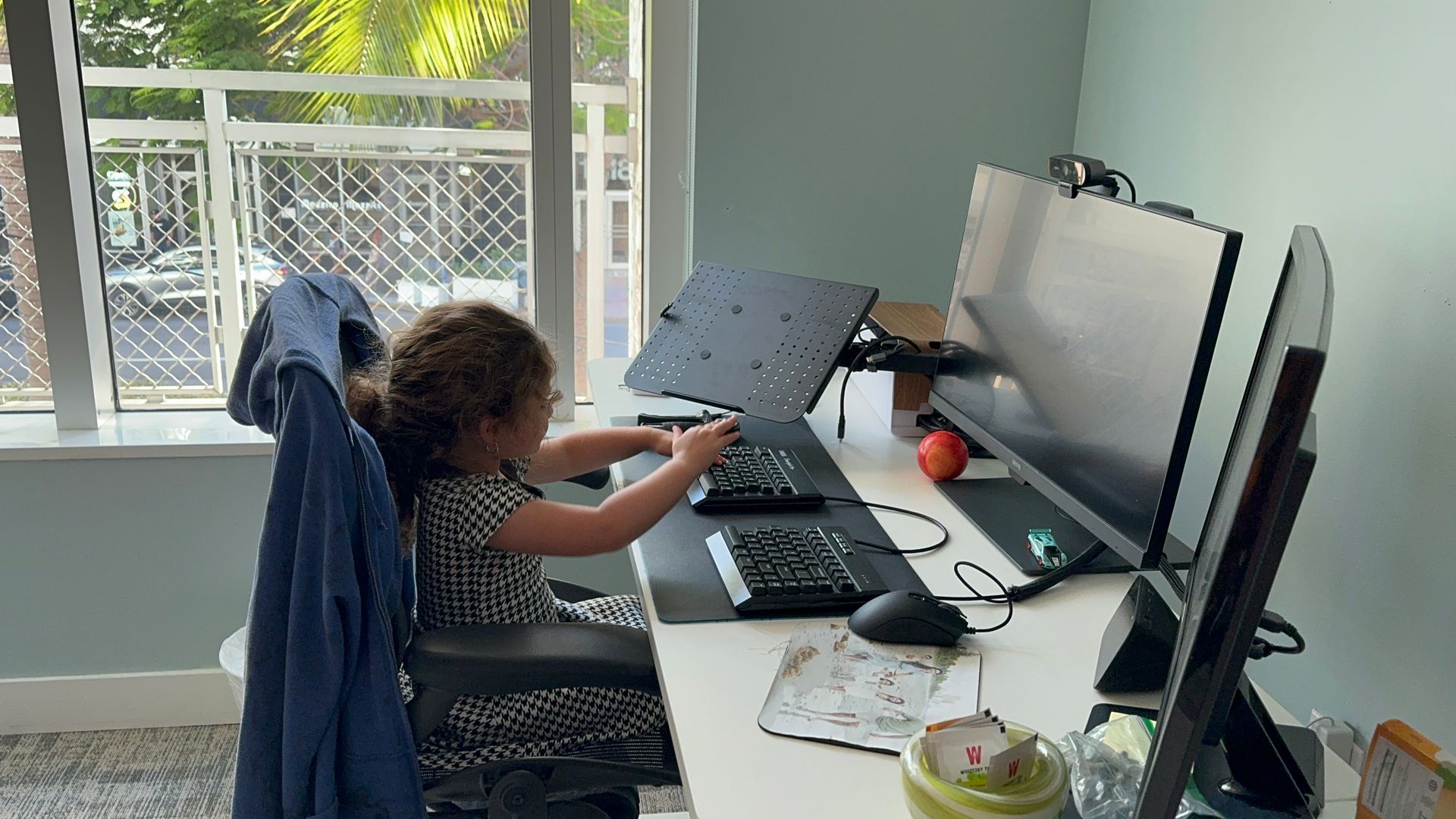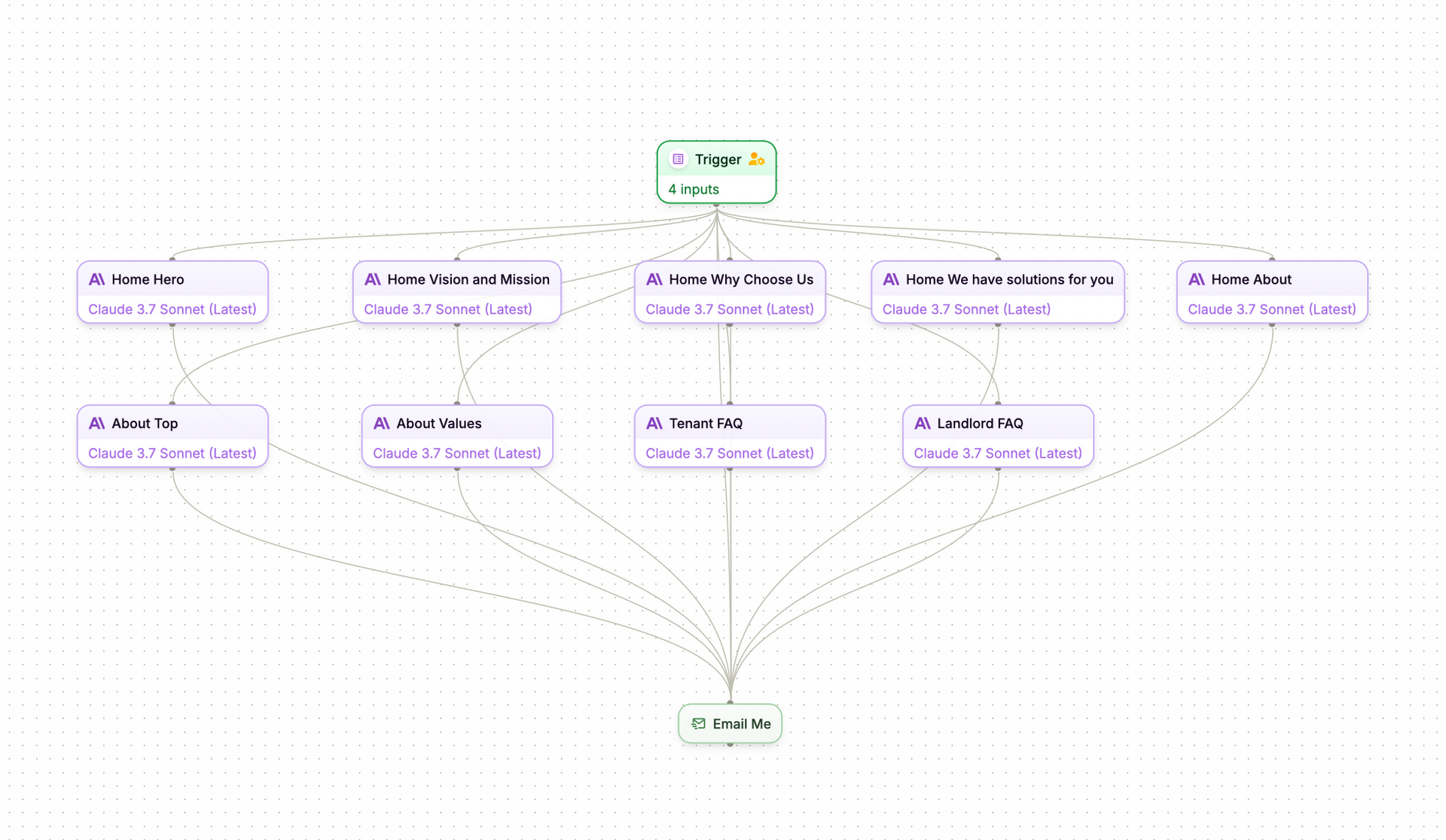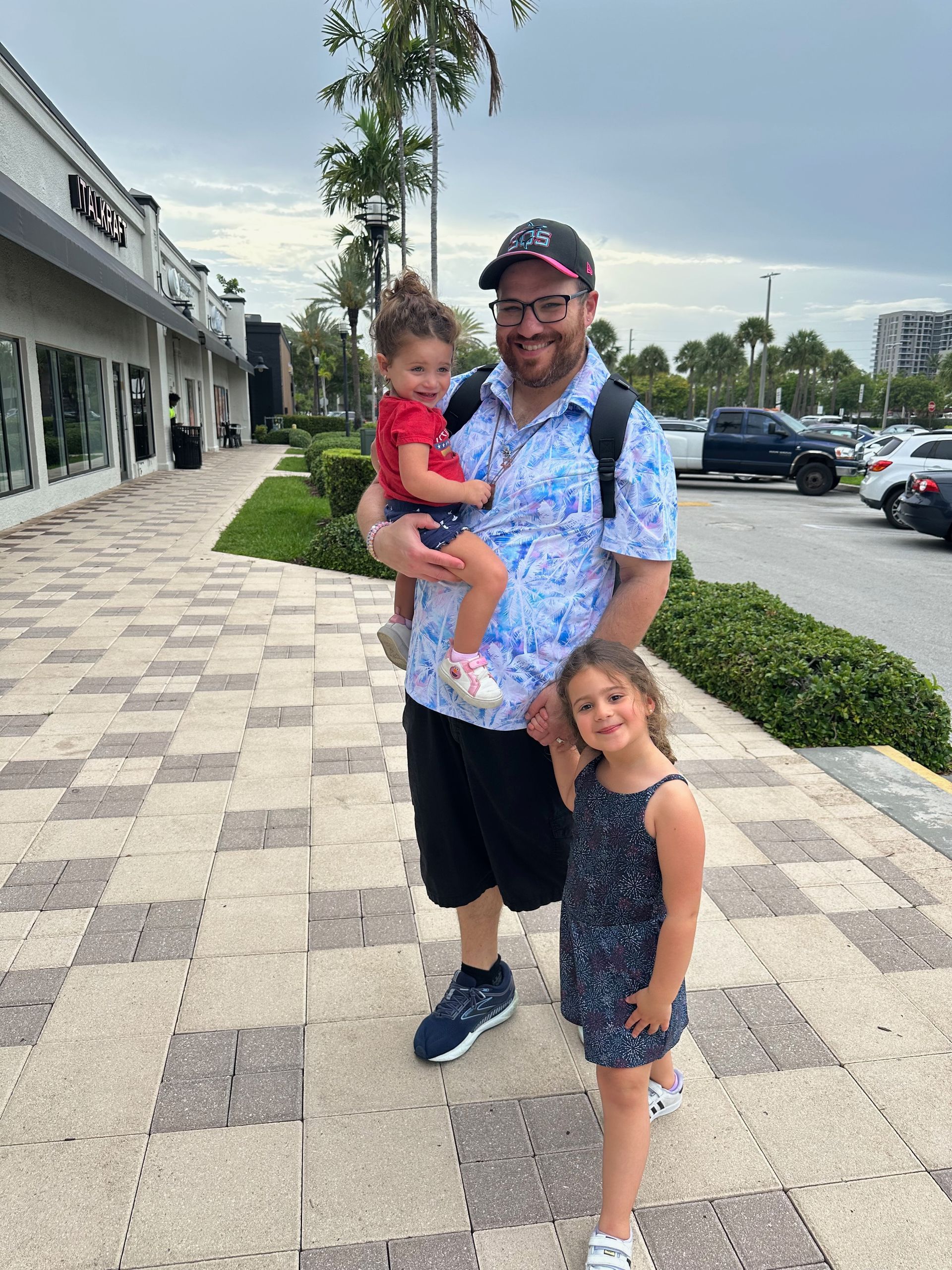
The Jewish Bedtime Ritual That Transformed Our Family's Nightly Routine
Why the Shema Became Our Family's Bedtime Superpower
Here's something I never expected when I became a dad: that a 3,000-year-old Hebrew prayer would become my secret weapon for bedtime chaos.
Every night, after baths are done, books are read, and teeth are brushed, we perform this ancient ritual that's become more essential than Yael's obsession with Bluey. My 4-year-old covers her eyes with tiny fingers, while 1-year-old Diana tries to copy her from Mazi's lap, and together we recite the Shema , Judaism's most fundamental prayer. What started as "we should probably do this Jewish thing" has become our most powerful tool for ending each day with actual connection instead of the usual bedtime negotiations that sound like hostage situations.
Look, I'm not here to convince you to convert to Judaism (though Mazi makes a mean challah). But here's what I've discovered after three and a half years of this practice, starting when Yael was just 6 months old: this ancient prayer might just be the most underrated parenting hack in existence. And modern science? It's basically proving what Jewish mothers have known forever.
When ancient wisdom meets modern chaos
Let me paint you a picture. It's 7:30 PM on a Tuesday, and I'm stuck in Miami traffic, watching the clock tick closer to bedtime. While other parents might be dreading the evening chaos, I'm genuinely excited to make it home in time for the one part of our routine that I actually look forward to. There's something about knowing that no matter how crazy the day has been, we'll end it together with this quiet, meaningful moment.
This is when the bedtime Shema works its magic.
The practice isn't some modern wellness trend, by the way. We're talking biblical commandment territory here. The Torah literally instructs us to speak these words "when you lie down and when you rise up." But the bedtime version, Kriat Shema al HaMitah (try saying that three times fast), carries special significance that goes way beyond just checking a religious box.
Here's where it gets interesting: the Talmud teaches that when we sleep, our souls basically take a field trip to heaven for a daily performance review, leaving our bodies temporarily vulnerable. The bedtime Shema serves as protection during this spiritual Uber ride. Rabbi Yitzchak noted that "demons are kept away" from those who recite it before sleep.
Now, I'm not particularly worried about demons in Miami (though I-95 during rush hour comes close), but the underlying principle hits different: sleep is a time of vulnerability that benefits from intentional preparation. It's like spiritual armor for the unconscious hours.
The core prayer itself, "Hear, O Israel: The Lord our God, the Lord is One," represents Judaism's fundamental declaration of monotheism. But beyond the theology, it's about acceptance and commitment to living according to something bigger than yourself. When Yael covers her eyes and recites these words, she's joining a chain of tradition that stretches back to Moses. No pressure, kid.
What the research nerds discovered
Okay, this is where I get to be the dad who quotes studies at dinner parties (sorry, friends).
The ancient rabbis intuited something that contemporary research has now confirmed with actual data: consistent bedtime routines provide remarkable developmental benefits for children. We're talking better executive function, improved working memory, enhanced attention control. Basically, bedtime routines are like CrossFit for developing brains.
But here's what really got my attention: the psychological benefits extend way beyond just better sleep. Children with consistent bedtime rituals develop better emotional regulation, reduced anxiety, and enhanced feelings of security. It's like they're building an internal Swiss Army knife for handling life's curveballs.
And when you add spiritual practices into the mix? Harvard research found that young adults who prayed daily showed more positive affect and better emotional regulation. Dr. Lisa Miller's work on developmental spirituality suggests that children come "hardwired to relate with the divine," which means we're not imposing weird concepts, we're nurturing something that's already there.
For our family, these benefits show up in ways that make the whole bedtime routine smoother. Yael, who's been doing bedtime Shema since she was 6 months old, genuinely finds comfort in the ritual and often reminds us when we're running behind schedule (which, let's be honest, is most nights). Both girls seem to settle more easily after we've finished our prayer sequence.
How modern families hack ancient prayers
Here's the thing I love about Jewish families today: we're not museum curators preserving traditions under glass. We're creative adapters, finding ways to make 3,000-year-old prayers work with toddlers who think "patience" is something that happens to other people.
Some families use simplified versions, focusing on just the first line instead of the full traditional liturgy (which, honestly, is longer than most Netflix episodes). Others integrate gratitude practices, asking kids to share something they're thankful for each night. Many incorporate technology thoughtfully, using apps with interactive elements or recorded melodies.
The key insight? Meaning matters more than ritual perfection. Families increasingly focus on the spiritual and emotional benefits rather than perfect execution of traditional liturgy. One mom I know shared how her toddler learned to place her parent's hand over her eyes during the Shema, showing how even tiny humans can engage with the physical elements.
Creative adaptations include singing the Shema to familiar melodies, using picture books with Hebrew transliterations, and creating "prayer tents" with blankets for that cozy, secret clubhouse feeling.
When spirituality meets real parenting
Here's what I didn't expect: the most profound discovery in our bedtime Shema practice is how spiritual rituals can serve as reset buttons for the whole family. After busy days of work calls, preschool pickup, and the general chaos of keeping tiny humans alive, this ritual creates a sacred pause that benefits everyone, not just the kids.
Research on "shared spirituality" between parents and children shows it provides over 80% protection against depression transmission. When families engage in spiritual practices together, they create stronger bonds than individual practices alone. The bedtime Shema offers exactly this kind of shared spiritual experience, but without requiring anyone to sit still for longer than a toddler's attention span.
For me as a father, the nightly ritual has become a moment of reflection that I actually look forward to. Racing home through Miami traffic, I'm genuinely excited to make it in time for those final moments of the day. Covering my eyes alongside my daughters, I'm reminded of what truly matters beyond quarterly revenue targets and whether we remembered to buy milk. The ancient words provide perspective on daily stresses and reconnect me to values that transcend the immediate concerns of parenting and work.
The practice also models vulnerability and faith for children. When parents engage sincerely in prayer, kids learn that it's safe to express spiritual needs and that turning to something greater than ourselves is a normal part of life. This foundation becomes invaluable as children face their own challenges and uncertainties.
Modern life offers precious few opportunities for families to actually slow down and connect deeply. The bedtime Shema creates a protected space where external distractions fade away. No phones, no screens, no rushing, just intimate time focused on comfort, connection, and meaning. It's like a daily family retreat that lasts three minutes.
The toddler-proofing manual
The practical challenge of incorporating ancient Hebrew prayers into the bedtime routine of a 4-year-old and 1-year-old has taught me that consistency and adaptability aren't opposites, they're partners. Here's what actually works when you're dealing with tiny humans who have the attention span of goldfish:
Start ridiculously simple and build gradually. With Yael, we began with just the first line of the Shema when she was 6 months old. We used a gentle, melodic voice and focused on making it feel comforting rather than obligatory. By age 3, she was covering her own eyes and saying the Hebrew words with accuracy that impressed the rabbi (and made me slightly competitive with other Jewish parents, not gonna lie).
Make it physical and sensory. The eye-covering aspect of the Shema is perfect for young children who learn through touch and movement. We sit close together, often with Diana on my lap and Yael snuggled beside us. The physical closeness helps both girls feel secure and makes the prayer feel like a special family moment rather than a religious chore.
Use translation and explanation without overthinking it. While we recite the Hebrew, we also explain what it means in age-appropriate terms. For Yael, we've explained that "Shema" means "listen" and that we're telling God we believe in Him. For Diana, we simply say "God loves you" while she mimics covering her eyes (though sometimes she covers her ears, her nose, basically any facial feature within reach).
Create routine and predictability like your sanity depends on it. The Shema happens at the exact same point every single night: after bath time, after books, after teeth brushing. It's literally the last thing we do before bed. This predictability helps both girls know what to expect and creates anticipation for the special moment.
The most important lesson? Keep it positive and pressure-free. Some nights, one or both girls are too tired or cranky to participate fully. We continue the routine anyway, letting them see us pray even if they don't join in. The goal is creating a consistent, loving practice that feels like comfort rather than obligation.
After we finish the Shema, we always end the same way: "Amen, laila tov" (good night in Hebrew), then "I love you," "I love you more," "I love you most," "I love you to infinity and beyond." It's our little family ritual that bookends the ancient prayer with something completely our own.
The plot twists nobody expected
After three and a half years of consistent bedtime Shema practice, the benefits extend far beyond better sleep (though both girls do sleep well, which I'm grateful for). Yael has developed a sophisticated understanding of gratitude and reflection that surprises visitors and makes me wonder if we accidentally raised a tiny philosopher.
She naturally talks about being thankful for good things and has learned to process difficult emotions through our bedtime conversations. When she was upset about a friend not sharing toys at preschool, she brought it up during our quiet time together and we talked through her feelings. These moments of connection happen because we've created space for them.
Yael goes to Hebrew school, so her recognition of Hebrew letters and understanding of Jewish tradition comes from multiple sources. But there's something special about the bedtime practice that makes the connection feel more personal and intimate than classroom learning.
Perhaps most significantly, the practice has given both girls a framework for handling uncertainty and fear. When Yael was scared during a recent thunderstorm (and Miami storms don't mess around), she asked to say the Shema together. The familiar words and ritual provided comfort that no amount of rational explanation could match. Sometimes ancient wisdom beats modern parenting techniques.
For our family, the bedtime Shema has become more than a religious practice, it's a daily reminder of connection, protection, and meaning. In a world that often feels chaotic and unpredictable, these ancient words offer something invaluable: a way to end each day with faith, gratitude, and love.
The bigger picture
The bedtime Shema represents something remarkable: an ancient practice that perfectly serves modern family needs. It combines the developmental benefits that research demonstrates with the spiritual significance that generations of Jewish families have cherished. For parents seeking meaningful ways to connect with their children while honoring tradition, this practice offers a powerful model.
But here's the key insight: it's not that Jewish families have discovered the perfect bedtime routine (trust me, we still have our share of bedtime battles). It's that intentional spiritual practices can transform ordinary moments into opportunities for connection and growth. Whether you're Jewish, Christian, Muslim, Buddhist, or just spiritually curious, the principle remains valuable: ending each day with gratitude, protection, and love creates a foundation for resilient, connected families.
As the last prayers fade and the girls drift off to sleep, I'm reminded that some of the most profound parenting happens in the quiet moments. The ancient words of the Shema, whispered in the darkness, create a bridge between the sacred and the everyday, exactly where modern families need it most.
And honestly? If a 3,000-year-old prayer can help two little girls feel safe and loved while teaching them about gratitude and connection to something bigger than themselves, I'll take it. Some parenting wins are worth celebrating, even if they come with ancient Hebrew homework.









